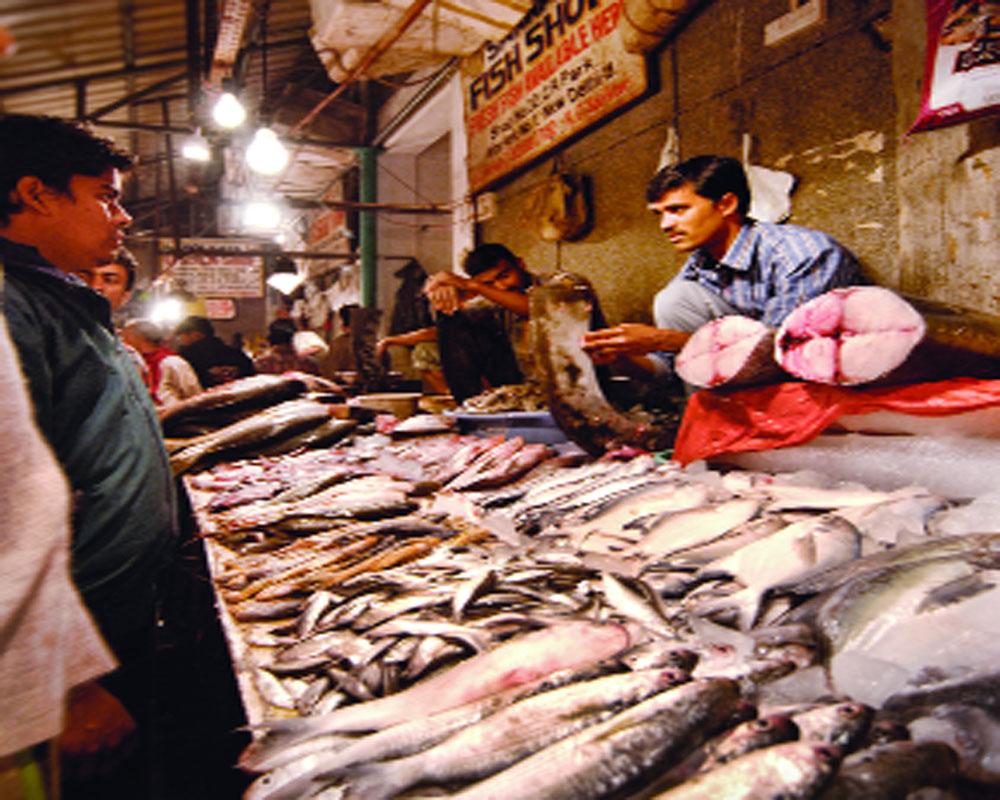As oceans are warming faster than expected, fish populations are declining rapidly
That climate change is impacting our lives more severely than thought, even beyond air quality and weather, is evident from disturbing reports on food chain dynamics. First, there was the Lancet report that we would not get to eat the meals the way we do now in 2050 until we switched over to a planet-friendly diet. Now, another study in Science has said that fish populations are declining as oceans warm up, with serious consequences for food consumption and fishing as an industry. The study found that the amount of seafood that humans could sustainably harvest from a wide range of species shrank by 4.1 per cent from 1930 to 2010, a casualty of human-caused climate change. That percentage difference actually means we have lost about 1.4 million metric tonnes of fish. What is most shocking is that this study was confined only to assess global warming and left out allied impacts such as overfishing. The dwindling fish also means depleting reserves of other marine creatures and what they feed on. In short, marine biodiversity as a whole is under threat. And the most vulnerable marine eco-systems are in east Asia and Japan in particular. Taken together, the crisis is indeed in the red zone of the scale. Fish today makes up 17 per cent of the global population’s intake of animal protein and accounts for 70 per cent of the livelihood in coastal and island countries. With ocean temperatures rising faster than previous estimates and our waters absorbing 93 per cent of the heat trapped by greenhouse gases that humans pump into the atmosphere, an unforeseen crisis is knocking at our door. Some fish are shifting habitats too.
Fish migration and their falling numbers are also a concern in India, with rivers hardly yielding the catch that they once did. Once ubiquitous as the Ganga’s pride, the rohu is now being sourced from faraway rivers like the Godavari. Riverine fish species are facing the heat from the pincer attack of pollution and barrages and dams mid-course. As many as 120 kinds of freshwater fish in India are threatened and in need of immediate protection. A report last year had warned how the fish population of the Sundarbans, the world’s largest mangrove forest, was plunging dismally. This eco-system nurtures around 172 species of fish, 20 types of prawns and 44 varieties of crabs, including two commercial species. The delta acts as the nursery for nearly 90 per cent of the aquatic species of the eastern coast of India. Human depredations have changed the hydrological patterns in the waters here and rising temperatures have meant the decimation of known species by arrival of invasive, carnivorous ones. With vanishing wetlands, we are fast losing a vibrant, rich and complex haul. We immediately need a conservation policy for aquatic life, something which was neglected in the Wildlife (Protection) Act of 1972. It was only in 2001 that species such as marine sharks, rays and 15 kinds of molluscs were included after active campaigning by biodiversity experts. But hundreds of fish species still need protection from over-exploitation. There has to be a multi-pronged approach of setting up sustainable pisciculture farms and nurseries for threatened species, defining trawler and fishing bans during breeding cycles and freeing up river migration channels during spawning. Of course, there has to be an overall rationing of our food choices if we want to avail this healthy source of protein for the well-being of the human race.


























